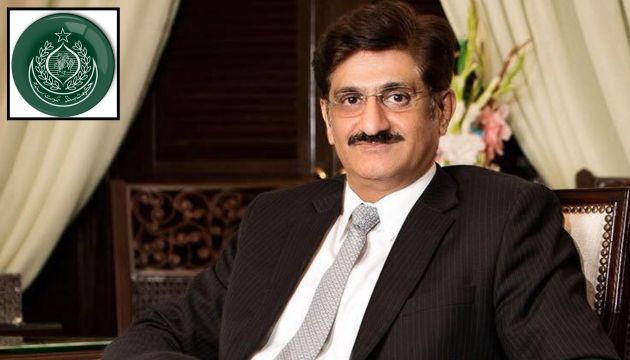KARACHI: Sindh Chief Minister Syed Murad Ali Shah chaired a meeting of the provincial cabinet and approved several major development projects aimed at solving Karachi’s water shortage, supporting farmers, promoting industry, and improving regional connectivity.
The cabinet meeting, held at the CM House, discussed 52 agenda items and approved most of them with clear instructions for immediate action. Senior ministers, advisors, and departmental officials were present.
Karachi Water Supply Project Approved
To ease Karachi’s worsening water crisis—especially in DHA where residents receive only 4–5 million gallons daily (MGD)—the cabinet approved a Rs10.56 billion interest-free loan for the Karachi Water and Sewerage Corporation.
The project includes a 36-kilometre dedicated pipeline from Dumlottee to DHA, along with a pumping station, filtration plant, and forebay. Approved by the KW&SC board in February 2025, the CM directed that it must be completed in 11 months.
New Agriculture Tax Rules Introduced
The cabinet also approved the Sindh Agricultural Income Tax Rules, 2025, which will help bring agricultural income under formal taxation. Key provisions include:
-
Farmers must register with the Sindh Revenue Board using Form AIT-01.
-
Tax returns must be filed with proof of payment (Form AIT-03).
-
Records should be kept in Urdu, Sindhi, or English.
-
Losses due to natural disasters can be carried forward.
A subcommittee was formed to finalise the rules for enforcement.
E-Stamping Made Paperless for Property Registration
In a move towards digital governance, the cabinet approved an amendment to the Sindh E-Stamp Rules, 2020, to eliminate the use of physical stamp paper in areas where e-registration is active.
The amendment enables digital verification of stamp duty and better integration of property records. This paperless system is already active in 51 sub-registrar offices.
CM Murad Ali Shah said digital systems are the need of the hour to make property registration simpler and more efficient for the public.
More Support for Flood-Hit Farmers
The cabinet increased the Flood Emergency Response Component (FERC) allocation from Rs21.56 billion to Rs27.67 billion, benefitting 151,147 verified farmers affected by the 2022 floods.
— ALSO READ —
Islamabad court orders blocking of 27 YouTube channels for ‘anti-state’ content
So far, Rs6.1 billion has been disbursed in three phases. An additional Rs2.37 billion in savings will be channelled through the Benazir Hari Card programme.
Benazir Hari Card MoU Signed
The Agriculture Department was authorised to sign an MoU with Sindh Bank to launch the Benazir Hari Card, which will offer:
-
Subsidies on agri inputs
-
Soft loans
-
Disaster cash assistance
-
Access to solar tube wells
-
Crop insurance
237,125 farmers have registered; 88,871 applications have been verified for card issuance.
Rs45 Billion Railway Project to Link Thar Coal
To improve coal transportation from Thar to Port Qasim, the cabinet approved a Rs45.02 billion railway link project from Islamkot to Chorr, in partnership with the federal government.
The plan includes a 105-km rail line, a 9-km dual track near Port Qasim, and a coal unloading terminal. The federal government has allocated Rs7 billion in PSDP 2025-26 for immediate release. The project is expected to complete in two years.
New Industrial Zone in Hyderabad
To create jobs and attract private investment, the cabinet approved a new industrial enclave on 951 acres in Hyderabad under a Public-Private Partnership model. Over 55,000 jobs are expected.
The land will be transferred to the Sindh Economic Zones Management Company (SEZMC) and the Finance Department will pay Rs3.54 billion for it.
Land Allocated for Hyderabad-Sukkur Motorway
The cabinet approved 248 acres of land worth Rs667.23 million for the Hyderabad-Sukkur Motorway (M-6). Additional land allocations in other districts were also approved, subject to departmental clearance.
CM Calls for Transparent, Quick Execution
Chief Minister Murad Ali Shah called the decisions “cornerstones of progress” that would ensure long-term development and public welfare. He directed all departments to work together for transparent and timely implementation.














